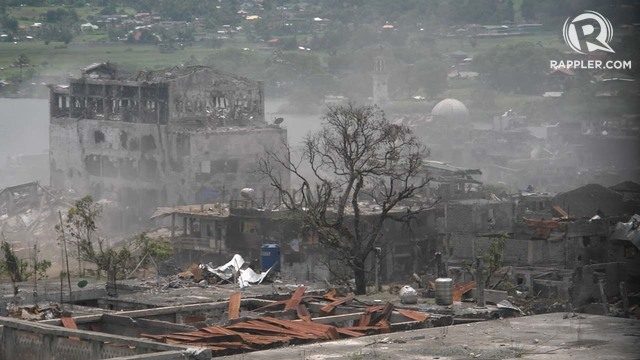SUMMARY
This is AI generated summarization, which may have errors. For context, always refer to the full article.

MANILA, Philippines – Voting 19-2, the Senate approved on third and final reading the measure that would give law enforcers a stronger legal backbone against terrorism and would effectively repeal the 2007 Human Security Act.
Senate on Wednesday, February 26, approved Senate Bill No. 1083 which seeks to provide law enforcers the legal tools to protect people from terrorism and at the same provide safety nets to protect the rights of those accused of the crime.
Senator Risa Hontiveros and Senator Francis Pangilinan both voted against the measure.
“We need a strong legal structure that deals with terrorism to exact accountability, liability, and responsibility. Those who have committed, are about to commit, or are supporting those who commit terroristic acts should be prosecuted and penalized accordingly,” said Senator Panfilo Lacson, the sponsor of the anti-terrorism bill.
The bill defined terrorism as engaging in the following acts with the purpose of inciting fear and seriously destabilizing structures in the country, among others:
- Causing death or serious bodily injuries to any persons, or endangers a person’s life;
- Causing extensive damage or destruction to a government or public facility, public place, or private property;
- Causing extensive interference with, damage, or destruction to critical infrastructure;
- Developing, manufacturing, possessing, acquiring, transporting, supplying, or using weapons, explosives, or biological, nuclear, radiological, or chemical weapons;
- Releasing dangerous substances or cause fire, floods, and explosions
Under SB 1083, those who will propose, incite, conspire, and participate in the planning, training, and facilitation of a terrorist attack could face a sentence equivalent to life imprisonment.
The same punishment would be meted out to those who will provide support to terrorists and recruit anyone to be a member of a terrorist organization.
A shorter period of imprisonment (12 years) would be imposed on the following acts:
- “Threatening” to commit terrorism
- Inciting others to commit terroristic acts
- Voluntarily and knowingly joining any terrorism group or association
- Being an accessory in the commission of terrorism
Under the measure, a suspected person can be detained without a warrant of arrest for 14 days, extendable to 10 days. They can also be placed under a 60-day surveillance, which may be extended to at most 30 days by the police or the military.
Certain regional trial courts would also have their own “anti-terror courts” for the speedy disposition of cases and to allow them to outlaw groups convicted of terrorism.
The measure also contains an important provision on the rights of suspected persons, requiring law enforcement agencies to notify the Commission on Human Rights whenever a person is detained.
But it would repeal the provision in the Human Security Act of 2007 that awards a sum of P500,000 per day of wrongful detention.
Possible abuses
Hontiveros and Pangilinan, who voted against the measure, warned of possible abuse should the proposed measure be adopted.
Pangilinan said that the measure’s definition of terrorism is “vague,” making it open to abuses as common crimes can be framed by erring law enforcers. He added that the length of detention is an impingement on rights and liberty.
“If security officials and law enforcers are doing their job, why will it take them long to file a case? Or, is the practice of arrest-and-detain-now, produce-or-invent-evidence-later still prevalent? As it was when opposition leader Jovy Salonga was arrested, detained, and charged in 1981?” Pangilinan said, referring to the terrorism case filed against Salonga during the Martial Law era.
Hontiveros, meanwhile, underscored that safety and security can never be at the expense of fundamental freedoms.
“While all rights permit exceptions, I fear that certain provisions of the bill – specifically those allowing the preliminary proscription of suspected terrorist organizations prior to their being given an opportunity to be heard as well as those lowering the standard for warrantless arrest and detention – go too far and might lead to a number of pernicious consequences,” Hontiveros said.
Progressive groups have protested against the passage of the anti-terrorism bill, saying that it would “normalize” martial law in the country and could be wrongly used against opposition protests like workers’ strikes and flash mobs.
At the House of Representatives, the counterpart measure has remained pending at the committee on public safety and order since the 18th Congress started.
Apart from the anti-terrorism bill, the Senate also passed on final reading the following measures:
- Creation of the proposed Philippine High School for Sports;
- Creation of the proposed think tank Philippine Energy Research and Policy Institution
- Expanding the legal assistance to overseas Filipino workers to cover costs of cases abroad
For these measures to be passed into law, their counterpart measures – all pending in their respective House committees – must first hurdle the lower chamber and later get the signature of the President. – Rappler.com
Add a comment
How does this make you feel?
There are no comments yet. Add your comment to start the conversation.